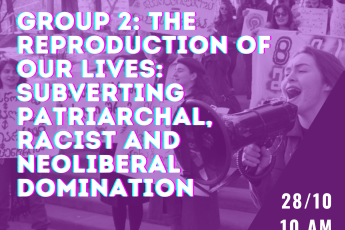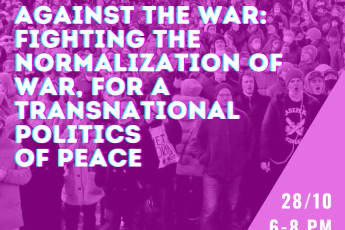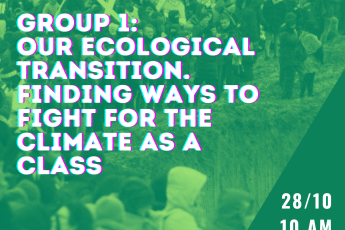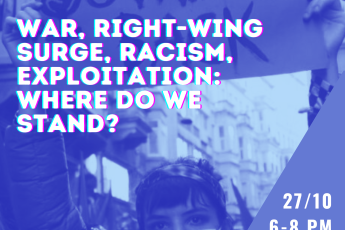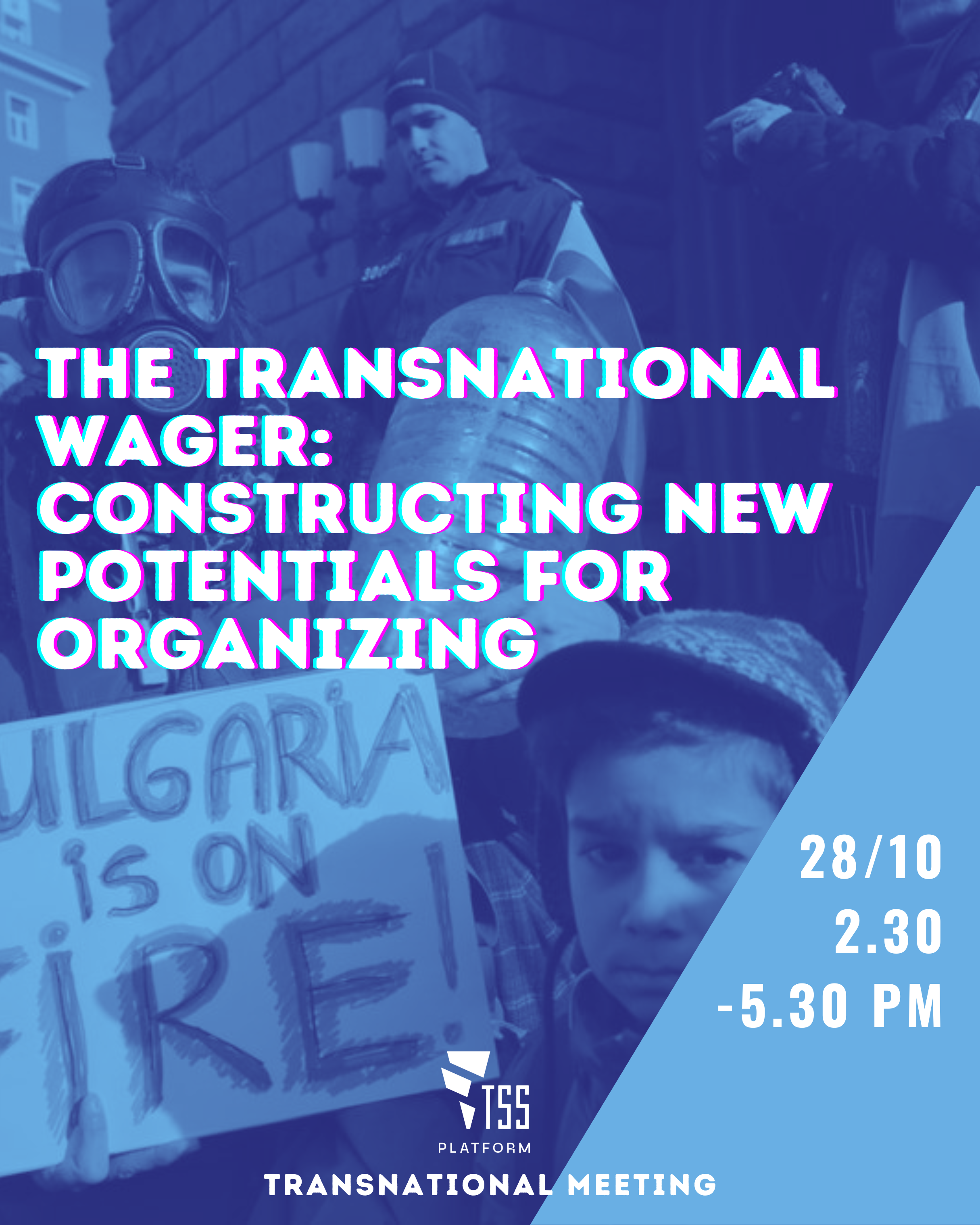
SATURDAY OCTOBER 28th: WORKSHOP 3 14:30h-17:30h (Porta Pratello)
As stated in the callout for this meeting, we live in no ordinary times. After the turmoil of the pandemic, the war in Ukraine has made it more difficult than before to envisage and give shape to projects of radical transformation. The war has shaken a transnational situation that movements and activists are still struggling to grasp. The eruption of an all-out war in Palestine, in a situation already marked by decades of occupation, apartheid and armed conflicts, makes evident the prospect of even larger wars. What is clear is that war politics is everywhere hijacking political imagination. Within this context, being forced to focus on daily struggles around costs of living and precarisation, with the climate crisis hitting hard, albeit differentially, on people and territories and reshaping working relations, and with the surge of racist and patriarchal policies, the transnational dimension continues to seem far from our immediate needs and collective capacities. But the transnational dimension is where we live in, here and now, and where seemingly scattered struggles prove to be pieces for possible collective uprisings.
To name just a few: as the war in Ukraine destroys lives and imposes rearmament and cuts in social spending, not only desertions, but strikes and protests in different national contexts–as the ones seen in France, Germany, UK, Romania or Ukraine itself–are signs of rising anger and of the refusal to be enrolled by war politics and pay its price; as the ‘green’ transition imposes new policies and pace to restructure production around the globe, not only climate movements, but also strikes as the one in the US automotive send a message far beyond the production lines of some big automakers, pointing at the possibility to connect struggles for wages to the fight against environmental devastation; as capital and states treat living labor as a disposable resource, and attempt to tame mobility, migrants challenging the border regimes embody the widest form of collective rebellion to any order and claim of stability.
In order to turn pieces into a collective potential and build a transnational voice for this fragmented but ongoing movement of insubordination, we need to take steps forward in the way we conceive what political organization is and can be, confronting the existing tensions between the local and the transnational, and those between discourses and initiative. In this section, which will involve all participants in the Bologna meeting, we want to pick up one of the major commitments we undertook after Frankfurt and tackle the current mismatch between the transnational reality and the forms of collective organization. We want to address the current pitfalls and possibilities for organizing by discussing the transnational dimension as a challenge and a political wager. We want to explore the potentials of the transnational social strike as a process for triggering connections and reversing the balance of power. We want to elaborate common discourses and strategies to strengthen our collective capacity to intervene across borders and conditions in time of war. To dare to win again.
Introductory notes to the discussion: read here


